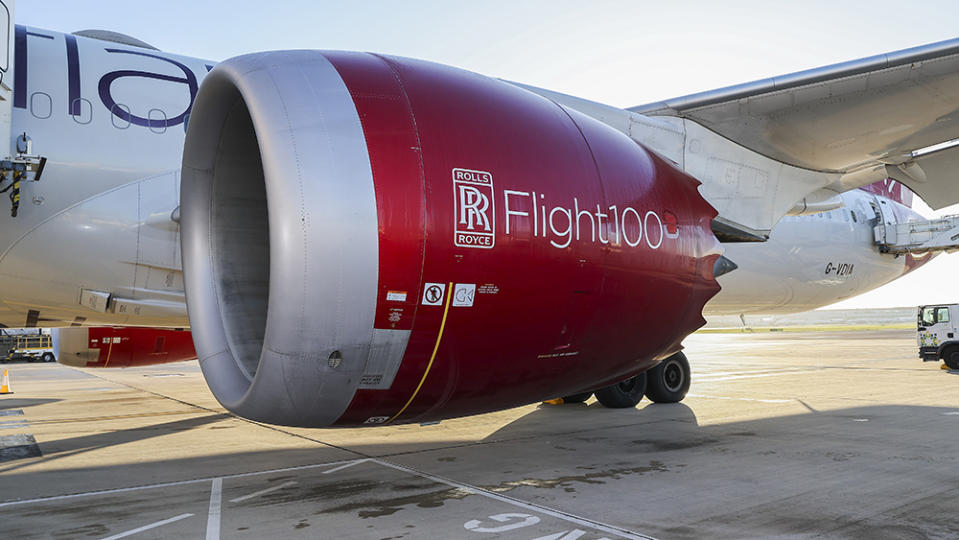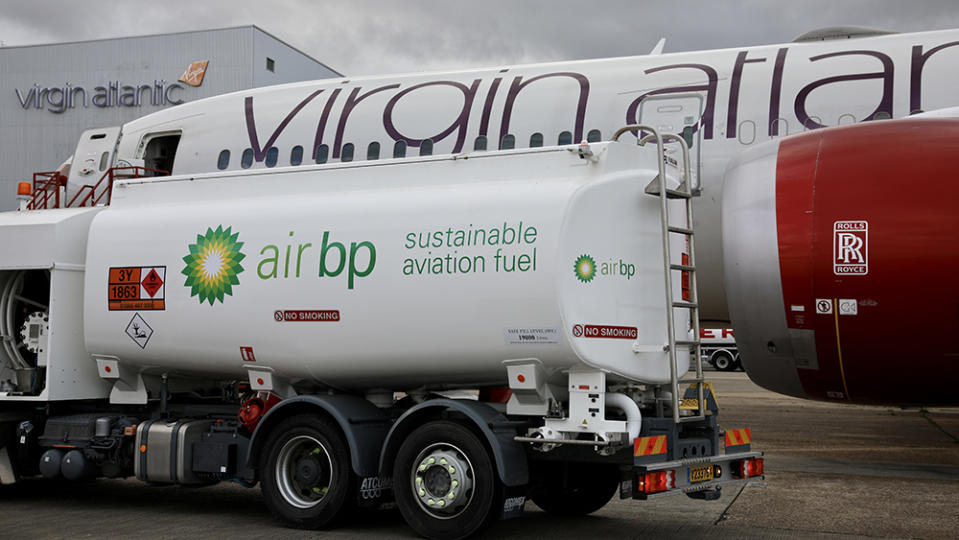A Virgin Atlantic Jumbo Jet Just Flew From London to N.Y.C. Using 100% Sustainable Aviation Fuel

- Oops!Something went wrong.Please try again later.
Jaunts across the pond just got a little greener.
A Virgin Atlantic passenger plane today flew from London to New York using 100 percent sustainable aviation fuel (SAF), marking a significant step toward the decarbonization of long-haul flights.
More from Robb Report
Richard Branson's Necker Island Is Offering Holiday Stays for the First Time Ever
Richard Branson Turned This Stunning Spanish Estate Into a Luxe Resort. Here's a Look Inside.
What It's Like to Take Richard Branson's Virgin Voyages Cruise Around Greece
Powered by Rolls-Royce Trent 1000 engines, the Virgin Boeing 787 took off from London’s Heathrow Airport just before 7 a.m. EST on Tuesday and arrived at New York’s John F. Kennedy International Airport around 3 p.m. EST. Flight100, as Virgin is calling it, marks the first time a commercial airliner has flown long haul on 100 percent SAF.

Virgin Atlantic’s billionaire founder Richard Branson, the airline’s chief executive Shai Weiss, and Britain’s transport minister Mark Harper were all on today’s flight, but there were no paying passengers or cargo onboard.
“I couldn’t be prouder to be onboard Flight100 today alongside the teams at Virgin Atlantic and our partners, which have been working together to set the flight path for the decarbonization of long-haul aviation,” Branson said in a statement.
Flight100 comes just one week after a Gulfstream G600 business jet completed the world’s first transatlantic flight using the same biofuel. Made from waste materials, such as cooking oil or animal fats, SAF cuts CO2 emissions by up to 80 percent, reduces particulate matter by 90 percent, and eliminates sulfur oxide, while working just like a traditional jet fuel.

SAF could have a significant role to play in the decarbonization of long-haul flights. It could also help the industry move closer to the so-called “jet zero” strategy—that is, aviation’s goal to reach net zero by 2050. The industry currently accounts for an estimated 2 to 3 percent of global carbon emissions, but that could be reduced if SAF is made widely available.
The problem is that the fuel is pricey and hard to come by. (SAF can cost three times more than conventional jet fuel but accounts for less than 0.1 percent of total global jet fuel in use today.) Demand is only growing, too, with airlines eager to increase the percentage of SAF they are allowed to blend in with kerosene. The US Department of Energy estimates that all forms of aviation will eventually need 35 billion gallons per year to meet the 2050 net-carbon-zero goals.
“There’s simply not enough SAF, and it’s clear that in order to reach production at scale, we need to see significantly more investment,” adds Virgin Atlantic CEO Shai Weiss. “This will only happen when regulatory certainty and price support mechanisms, backed by the government, are in place. Flight100 proves that if you make it, we’ll fly it.”
Best of Robb Report
Sign up for Robb Report's Newsletter. For the latest news, follow us on Facebook, Twitter, and Instagram.

